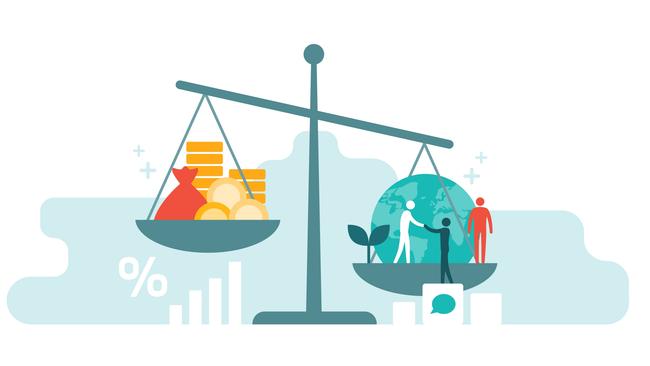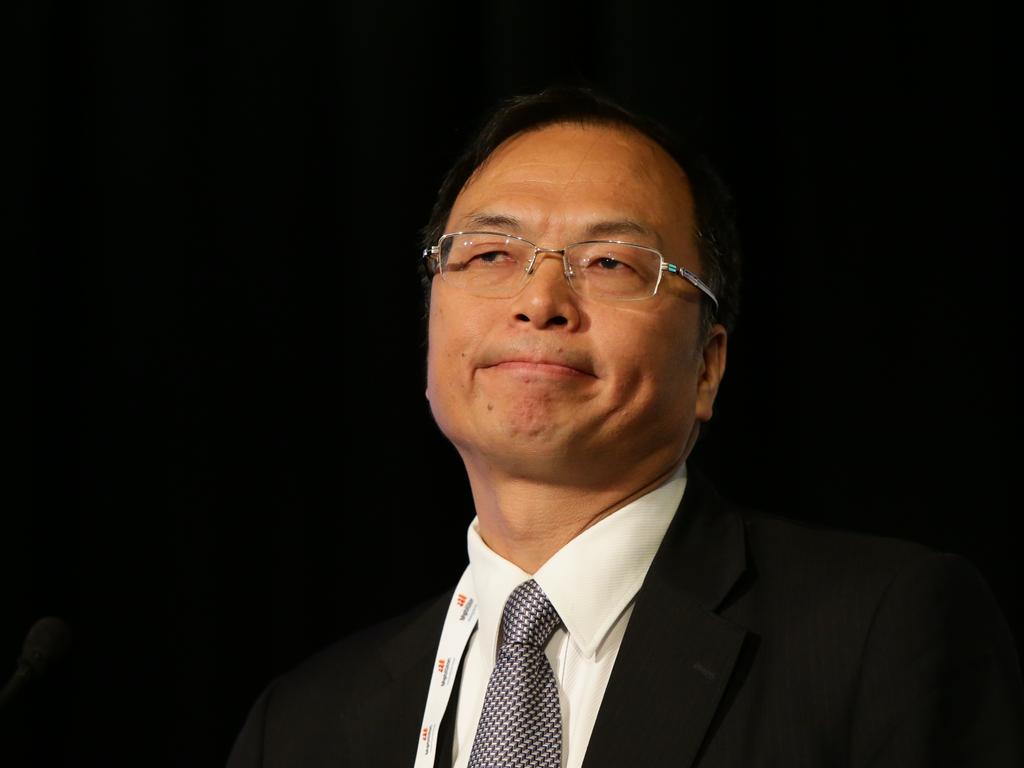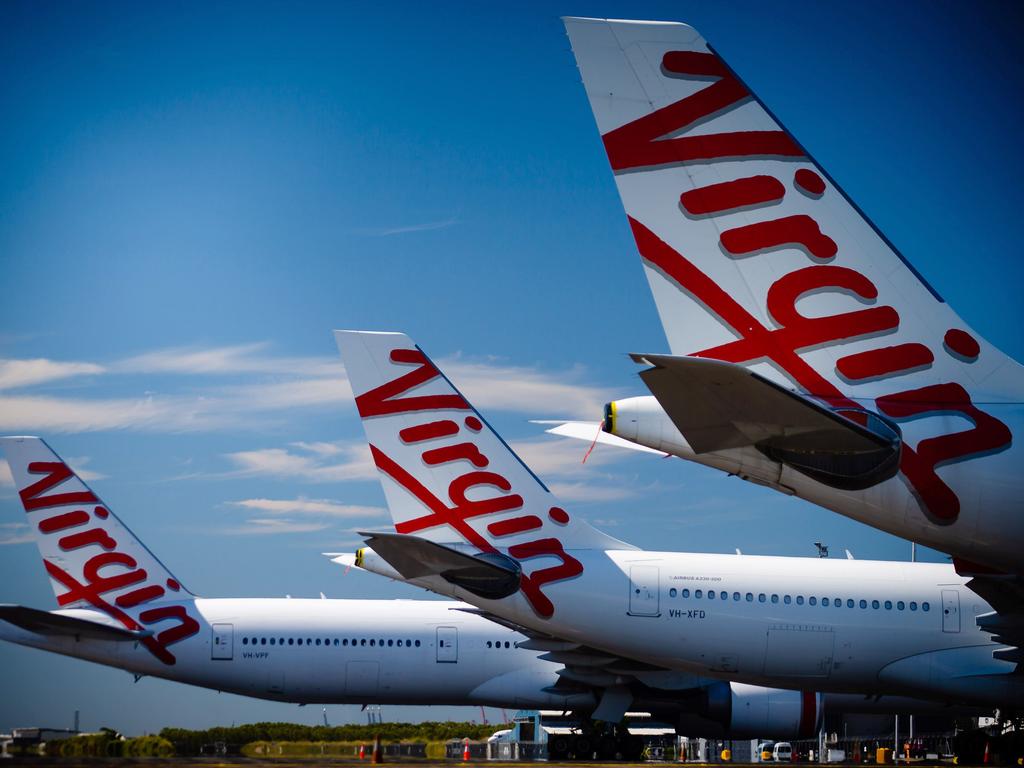New challenge for ‘woke capitalism’
The devastation caused by the pandemic has raised questions about corporate Australia’s capacity to work for society as well as shareholders.

Sydney academic Carl Rhodes was busy writing his book on “woke capitalism” when COVID-19 disrupted the world a couple of months ago, highlighting the tensions that already existed around corporate social responsibility.
A crisis that only governments could truly address sent Rhodes, who is professor of management and organisation studies at the University of Technology Sydney, back to update his manuscript about a style of corporatism that has seen business taking a stand on everything from climate change to same-sex marriage in recent years.
Rhodes found his criticism of the “caring capitalism” that increasingly drives company boards was reinforced as corporations were forced to make decisions on economic rather than social grounds. And it all happened so quickly.
In January the wealthy of the world were gathered in Davos for a World Economic Forum that feted teenage climate warrior Greta Thunberg.
Says Rhodes: “Corporations suggested they would back progressive political causes out of genuine concern for others, they would take over where government left off in the provision of public goods.”
A few months earlier the US Business Roundtable had announced that the core purpose of a corporation was not to serve its shareholders but to promote an economy that served everyone well.
It seemed we had reached peak corporate social responsibility, the high point of almost 30 years of advocacy about the need for companies to involve themselves in social issues.
Then along came the biggest economic and social crisis for generations, one that proved overwhelming for business.
Rhodes says: “The only response to a crisis of this nature is from governments, not from companies. When you have the RBA spending billions to address this problem, it reinforces the importance of the different roles of the state and companies.”
He doesn’t suggest it could have been otherwise, nor does he deny the role of the market in economic revival. It’s just that COVID-19 is a reminder that corporations can go only so far in his view.
What’s fascinating is that Rhodes comes at this issue from the left: he says for example that if corporations really want to be good corporate citizens, they should pay appropriate tax. But his critique of “woke capitalism” is shared by many on the right who are opposed to business taking on “progressive” causes.
Good corporate citizens?
Some examples. In an article on the American Enterprise Institute website last November, a resident fellow at the conservative think tank, Matthew Continetti, argued that US industries were hypocritical in their different responses to Chinese and American authority.
“The US industries most obsequious to Chinese audiences present themselves as socially, culturally and economically progressive at home,” he wrote.
“The National Basketball Association, Hollywood, Silicon Valley and major financial institutions are exemplars of the ‘woke capitalism’ that has transformed the business landscape in recent years.
“GM cannot meet the demands of 48,000 striking workers, but it wants you to know that it supports wind power and gender equity.
“GE suspended pension benefits but remains a signatory to the UN Global Compact, is a highly rated workplace according to the Human Rights Campaign, and received a State Department award for ‘inclusive hiring in Saudi Arabia’.”
Another critic, Samuel Gregg, research director at the Acton Institute, wrote online last year: “The phenomenon of woke capitalism isn’t only about corporate America succumbing to progressive ideologies. It reflects deep confusion about the purpose of business and how commerce serves the common good.”
Gregg wrote that it was not that private enterprise had no responsibility for society’s common good, it’s just that we “do not want businesses acting like chess clubs” or vice versa.
In Australia, when Qantas backed the same-sex marriage campaign in 2017, it was criticised by some but generally applauded for its stance.
Three years on, Rhodes has no problem with that advocacy but notes that Qantas chief Alan Joyce was one of the first bosses to stand down thousands of staff from their jobs when the virus hit.
“He had no choice, he had to do it,” says Rhodes. “He had to make an economic decision, but it shows that the public commitments to society can only be made by corporations when it suits them.
“If corporations were genuine (at Davos) in wanting to take over where government has left off, where are they now? Corporations might like to talk up their social credibility and political righteousness, but when times get tough they lack both the will and ability to do what needs to be done.”
Big tests to come
The Ethics Centre executive director Simon Longstaff says it’s wrong to suggest companies did not respond to the pandemic.
“Those that could, did,” he says. A number of businesses such as the banks stepped up, and other companies changed payment terms to help suppliers. But the big tests for corporations will come as they emerge from the shutdown and are forced to take action to survive the recession, he says.
“Organisations will get smaller, there will be higher levels of unemployment, there will be people who survive and others who fall by the way as they are made redundant,” he says.
“Society will need to look after them, and organisations will have to contend with the fact that there will be a lot of people with survivor guilt. How do companies tell a story about why it mattered that they continued to survive?”
Longstaff says those on either side of politics who use the term “woke capitalism” misunderstand capitalism and its purposes. It is a derisory term suggesting corporate responsibility is “not real, somehow confected or progressive in ways that conservatives can condemn”.
“But I think if you are a true conservative, you (should see) that this is a return to the original concept — it is getting back to basics and seeing how a system returns to its roots and evolves,” he says.
“There are deeply entrenched decisions made at the beginning of modern capitalism and the corporation (in the mid-19th century) which say that (the corporation) can’t be indifferent to the effects of what they do.”
He says concepts have been debated in the past 30 years, including corporate social responsibility, as a top-down notion linked to ESG (environment, social, governance) issues, to the notion of companies having a social licence to operate that is based on a parasitic or symbiotic relationship between business and society.
Longstaff argues for a different approach, the concept of social value where corporations are seen as an intrinsic part of society — the heart of a body that has to be healthy for the heart to survive and vice versa.
“This is where there are interesting possibilities,” he says.
“Not in those sterile debates by those who insist on saying business is not a part of society … and is just there for the enrichment of shareholders.”
-
Carl Rhodes’s book, Woke Capitalism: Democracy under threat in the age of corporate righteousness, will be published by Policy Press next year.








To join the conversation, please log in. Don't have an account? Register
Join the conversation, you are commenting as Logout